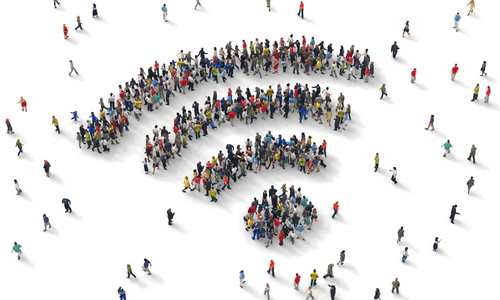Mirror Neurons - Friend or Foe?

Issue No. 23 | Brought to you by the Addiction Reset Community – ARC
Unlocking the secrets of processed food addiction and guiding you to find freedom from food and weight obsession.

In this issue, we take a closer look at why we lose control over our food... against our will and much to our dismay.
Science is increasingly focused on the role of mirror neurons in our decisions about what to eat. It seems that these powerful neurons in the brain can direct us to do what the people around us are doing... no matter what.

Have you ever had the experience of watching someone eat something and then getting an intense craving for that food? Maybe you haven't thought about that food for a long time, but suddenly you can't get it off your mind. Those thoughts could be coming from your mirror neurons. Those mirror neurons might think that eating the same thing as the other person could save your life, even if the opposite is true. So learning how to manage the thoughts that ema...
Processed Food Addiction and Mental Health

Issue No. 22 | Brought to you by the Addiction Reset Community – ARC
Unlocking the secrets of processed food addiction and guiding you to find freedom from food and weight obsession.

So many people around the world suffer in the painful despair of facing mental health challenges. While some conditions may require a clinical diagnosis and treatment, it may surprise you to know that research reveals that processed food alters brain function.

Scientific studies reveal that processed foods are associated with the following direct and indirect aspects of mental health:
- Anxiety: Processed foods activate brain cells which release a signal that tells the adrenal glands to release adrenalin. With extra adrenalin floating around the body, we become anxious and angry.
- Depression: Processed foods cause reward brain cells to release extra dopamine. So much extra dopamine causes the dopamine pathway to 'wear out.' The technical term is down-regulate. The pathway can't make the pers...
Catching Food Addiction From Social Circles

Issue No. 21 | Brought to you by the Addiction Reset Community – ARC
Unlocking the secrets of processed food addiction and guiding you to find freedom from food and weight obsession.

If we consider how much time we spend in the company of family, friends, acquaintances or co-workers, it may be worth noting that research shows that we can actually “catch” processed food addiction from our social circles. While processed food addiction is not caught in the same way as an airborne virus, eating behavior patterns are indeed “contagious”.

Have you ever struggled to remain consistent on a new diet plan because you were the only one in the house trying to eat clean? Or perhaps you’ve tried to eat clean while your circle of friends found it unthinkable that you would “deprive” yourself of eating sugary treats with them? Or have you had difficulty avoiding the junk food in the breakroom at work because your co-workers convinced you to take a break from your diet “just for today”?

...

